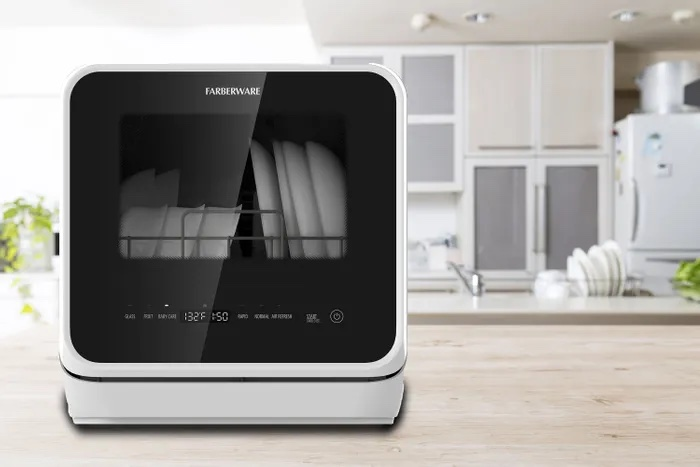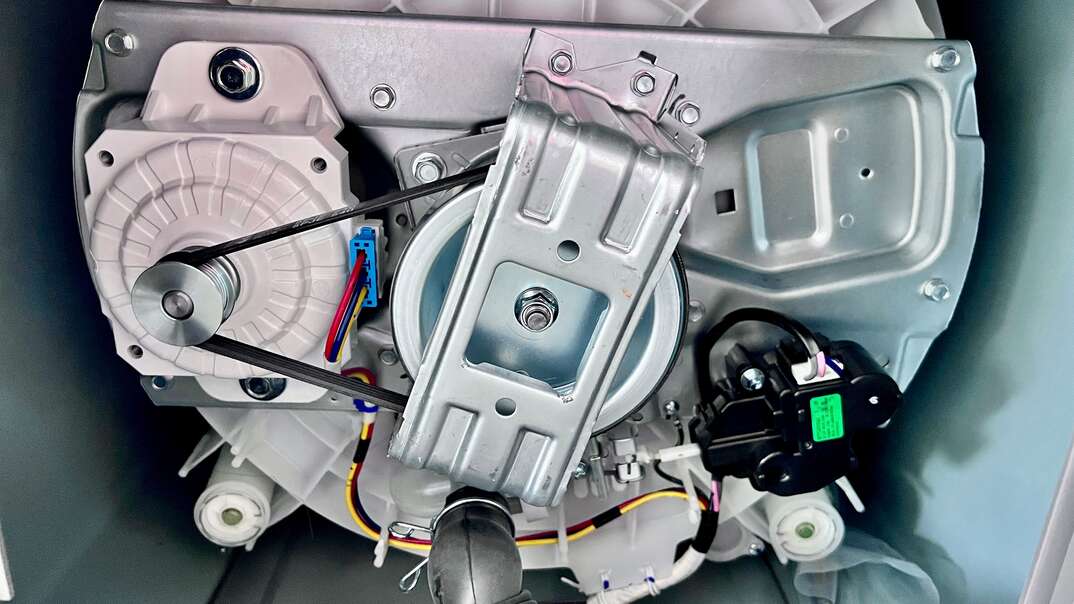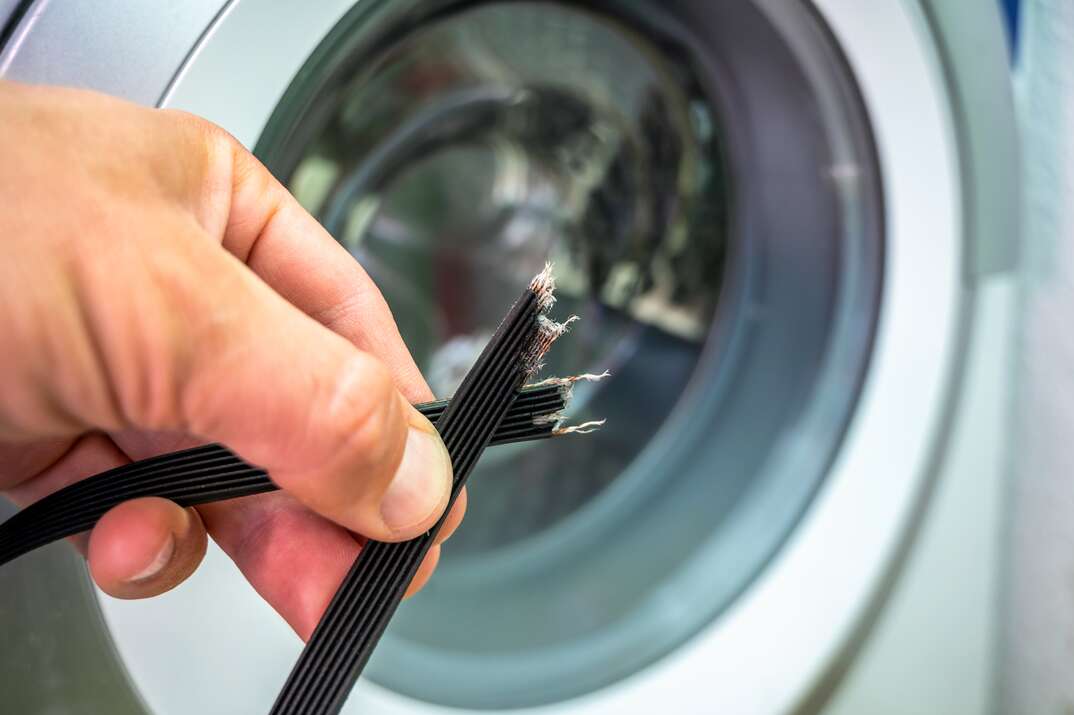How Much Do Countertop Dishwashers Cost?

Washing dishes by hand is a drag. Not only is it time-consuming and labor-intensive, but also incredibly wasteful — using an average of 27 gallons of water per load. Dishwashers only need a fraction of that, and they’re effortless to use.
This May Also Interest You: What’s the Deal With Countertop Dishwashers?
Unfortunately, not everyone has the space or budget to bring the many advantages of a full-size dishwasher into their home. That’s where countertop dishwashers (a.k.a. portable dishwashers) come in. They offer all of the same benefits of a full-sized dishwasher, but are less expensive, take up less space and are much more energy-efficient. They’re perfect for those living in smaller apartments, RVs or dorms. They’re also a space- and money-saving option if your current, full-sized dishwasher is due for a replacement.
Countertop Dishwashers: Costs and Cost Factors
According to Taste of Home, countertop dishwashers typically cost between $300 and $500 (CAD 402 and CAD 671), depending on the specific features and characteristics. However, Better Homes and Gardens says high-end models may be priced at $1,000 (CAD 1,342) or more. The following factors determine the cost of a particular model:
Dimensions
Most countertop dishwashers are between 17 and 22 inches wide, 19 and 21 inches tall and 13 to 21 inches deep. All other factors being equal, larger dimensions usually translate to a larger loading capacity and a higher price. However, bigger isn’t always better, especially if you can’t afford to waste space.
Capacity
Most models can handle between four and six place settings, including dinner plates up to 10 or 11 inches in diameter. The dishwasher will come with dish, glassware and cutlery racks for efficient loading. Some dish baskets can also accommodate smaller pots and pans, but they are usually only large enough to handle one or two at a time. Some countertop dishwashers even have wash cycles specifically for pots and pans.
Wash Cycles
Just like regular dishwashers, most countertop dishwashers offer multiple wash cycle options, like “regular,” “eco-mode,” “speed wash,” “quiet,” “pots and pans,” “dry,” “baby bottles,” etc. Most countertop dishwashers feature six to eight wash cycle options. Units that offer the most wash cycles are often more expensive.
Materials and Construction
Countertop dishwashers are typically constructed with one of two materials: plastic or stainless steel. Units with a stainless-steel interior and exterior are more expensive than plastic, but they’re also considerably more durable and longer lasting. Stainless steel also retains heat much better than plastic, so its dry cycle will be more energy efficient.
Energy Efficiency and Water Use
Countertop dishwashers only use 2 to 3 gallons of water per cycle, compared to the 4 to 6 gallons full-sized models use. Countertop dishwashers also run off about half the amount of electricity as full-sized units, which use 1800 watts of electricity per load, on average. Energy Star-rated models use even less, but they’re usually the most expensive.
Noise Level
If you live in a smaller space, the last thing you want to hear is the rumbling of a noisy dishwasher in every room of your home. Fortunately, even the loudest countertop dishwasher only produces around 65 decibels (dB) of noise, which is roughly the same volume as a normal conversation. The quietest models emit a maximum of 50 dB, which is about the same as your refrigerator. Larger and more powerful dishwashers are often the noisiest, but they may feature a “quiet” wash cycle option. It’s generally recommended to look for a countertop dishwasher that’s no louder than 55 dB if noise levels are a concern.
Additional Features
Some models offer additional features like child locks, delayed start and automatic detergent and rinsing agent dispensers.
More Related Articles:
- The Filth Shall Get Them Clean: Why You Don’t Need to Pre-Rinse Your Dishes
- Don’t Get Lost in the Wash: How to Use Your Dishwasher Efficiently
- Should You Repair or Replace Your Dishwasher?
- Your Guide to Dishwasher Installation and Replacement Costs
- Common Dishwasher Problems and How to Fix Them
FAQs
Are Countertop Dishwashers Any Good?
Countertop dishwashers are excellent choices for smaller households. They offer the same functions and features as full-size dishwashers but are significantly more compact and energy-efficient.
The downsides? Countertop dishwashers can’t wash the same amount of dishes as their full-sized peers, so they may not be suitable for larger households. For larger families that desire the ease of installation of a countertop dishwasher but don’t want to compromise on washing capacity, a freestanding dishwasher is likely a better option.
How Do You Hook up a Countertop Dishwasher?
A countertop dishwasher’s smaller size offers the advantages of versatility and ease of installation. They can be placed practically anywhere with a nearby sink. They are designed to sit on a kitchen counter, where they receive water from a “quick connect” adapter plugged into your sink faucet. Most plug into a standard household wall outlet and drain into your sink. Compared to installing a full-size dishwasher, installing a countertop dishwasher doesn’t involve any special skills or additional installation expenses.
Can a Countertop Dishwasher Go Under the Sink?
Depending on the size of the unit, you may even be able to store and use it under your kitchen sink. However, doing so may involve installing designated water supply and drain lines since you won’t be able to connect the dishwasher to the sink. This can limit its portability and make for a more expensive installation, but the upside is that it won’t take up any counter or kitchen space.
All CAD conversions are based on the exchange rate on the date of publication.


